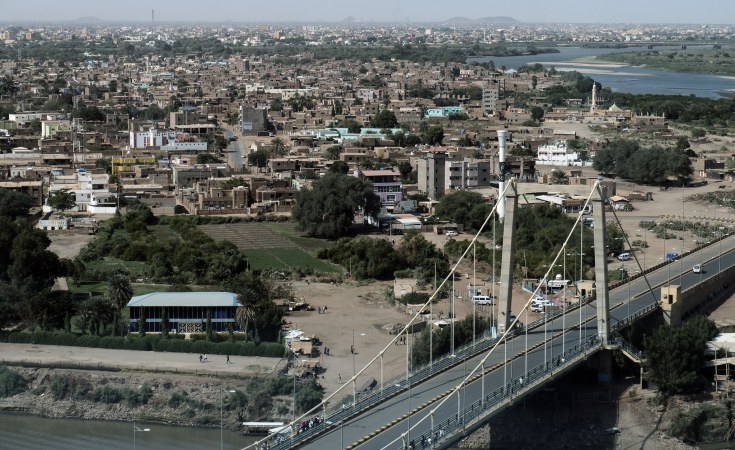Khartoum, Sudan — Signers of the political deal in Sudan say a transitional civilian government is expected to be named in April. Both civilian and military officials agreed Wednesday to expedite restoration of civilian rule in Sudan, where the military has ruled since a 2021 coup. But some groups are against the framework agreement and many Sudanese are skeptical that the military will ever give up power.
Signatories to the December 2022 Political Framework Agreement met on Wednesday to discuss progress toward restoring a civilian-led government in Sudan.
Speaking to the press shortly after the meeting, Khalid Omer Yousif, the official spokesperson of the civilian coalition that signed the agreement, says the meeting focused on expediting the process of drafting a new constitutional document.
The document, he said, will be the basis to govern the upcoming transition in Sudan.
He says participants also resolved to form a technical team that consists of representatives of the civilian coalition and military forces and other experts,
The body will be tasked with reviewing the agreement and drafting the constitution.
He said, "the meeting discussed the general progress on the political process and resolved a number of issues, including discussion on the remaining two complex matters, the transitional justice and military and security reforms. He said, those two issues are to be discussed in the ongoing political conference that should end before the holy month of Ramadan."
Ramadan begins March 23.
The December 2022 framework agreement requires that the parties to the political process organize a conference to discuss issues that need a national consensus.
Yousif says once discussions on transitional justice and military and security reforms are finished, the technical committee will start drafting a final political agreement that will lead to the establishment of a new civilian government in early April.
He said, "The joint technical and coordinated committee that comprises the signatories to the agreement and the trilateral mechanism is expected to urgently draft a new timeframe for the discussion of the remaining issues before signing of the final political agreement as soon as possible."
Some signatories of the 2018 peace deal aimed at settling Sudan's internal conflicts refuse to join the ongoing political process because they reject the framework and want to maintain the 2019 constitutional declaration made after the overthrow of longtime president Omar al-Bashir.
Many Sudanese are skeptical the military will completely give up power, regardless of any deals that are struck.
Khartoum resident Sahar Al-Jazuli says the October 2021 military coup negatively affected the revolution for democratic rule in Sudan and said supporters of democracy will not accept any agreement that doesn't serve justice.
Speaking to VOA via a messaging application Friday, Al-Jazuli says Sudanese people are now more aware of their rights and they will continue to speak up once they realize the framework agreement doesn't serve their interest.
Our people have learned a lot, he said, and they became more aware of their political rights as citizens by participating in the revolution. The Sudanese people learned and understood the meaning of uprooting rights, he said. They became determined toward achieving the slogans of the revolution, freedom, peace and justice.
However, another Khartoum resident, Al-Nazir Adam Musa, applauded the military for what he called "courageous" steps to leave the political scene and allow the country to be under civilian rule.
He said, "What we expect from the current framework agreement is that it would help the country to overcome the ongoing political deadlock because the military is determined to hand over the power to civilians. He said, "This is a good gesture so far."
Ibrahim Al-Merghani, the head of the political bureau at the opposition Democratic Unionist Party, predicted the ongoing talks on the framework will bear fruit.
There are not many differences among national political forces about the transitional issues, he said. He added, the differences will not affect the dialogue, which he forecasts will lead to "completion of the transitional period and sustainable democracy in the country."


